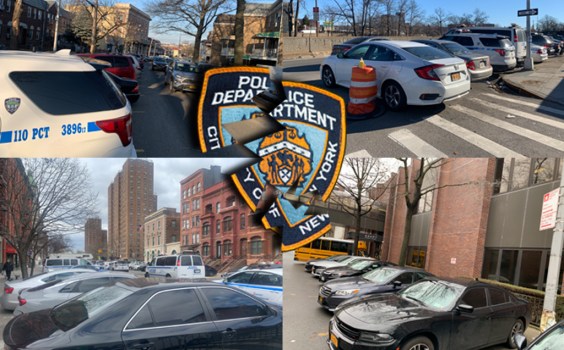A few weeks back, we told you about the dire situation for transit in Lorain County, Ohio, part of Greater Cleveland that's been hit hard by the recession. At that time, county officials were threatening to cut all bus service after voters rejected a sales tax increase that would have gone in part to fund transit operations. A redeployment of unused stimulus funds managed to rescue a skeleton of the former service, but the remaining cutbacks are still painful -- as was noted by President Obama in his visit to Lorain County last week.
Streetsblog reader Cheri Campbell, who first alerted us to the story, wrote on Twitter yesterday, "Obama did mention our county transit problem in his town hall speech. Will that mean anything? Who knows?"
In a great post on the situation in Lorain County yesterday, The New Republic's blog The Avenue highlighted the comment from Obama that Campbell is referring to: "You can't get to work or go buy groceries like you used to because of cuts in the county transit system." Writer Emily Garr went on to talk about how transit provides vital connections to both employment and education:
Public transportation, particularly in a recession, is a lifeline
for the unemployed and under-employed. Over the decade, the Cleveland
region experienced one of the largest increases in its suburban poor,
representative of the general uptick in suburban poverty nationally. As more poor and more unemployed
are found in America’s suburbs, public transit becomes even more
critical to connect 1) people to payrolls and 2) students to skills.
First, jobs -- if you can’t get to them, well, they are not any more likely to find you. Lorain County experienced the highest increase in unemployment of any Cleveland suburb since 2000. Yet in 2008, only
about 9 percent of job creation in the Cleveland metropolitan area in 2008 occurred in Lorain County itself, while about 72 percent of jobs were created in neighboring Cuyahoga.
Second to jobseekers is another population left in the lurch: students -- many of whom are community college students trying to rev up for the new economy. About 10 percent of students at Lorain Community College use transit.
Not surprisingly, talk of a cross-county partnership
between LCT and its eastern neighbor, the Regional Transit Authority (RTA) of Cuyahoga County, is gaining traction. (Unfortunately, the RTA
isn’t in a much better situation, funded from a fixed 1 percent of sales tax with revenues in decline).
Long story short, eliminating public transit may be a wake-up call that puts the Cleveland region on the road to smarter metropolitan cooperation. This will mean better access to jobs, training programs
and education for the people who need it most.
The advocacy group Policy Matters Ohio has launched a campaign to save transit across the state. Part of the problem is that Ohio's constitution prohibits any gas tax dollars from going toward transit. Will there be any political will to change that? We'll keep following the story.
Human Transit has some thoughts on the transit-employment connection as well.





